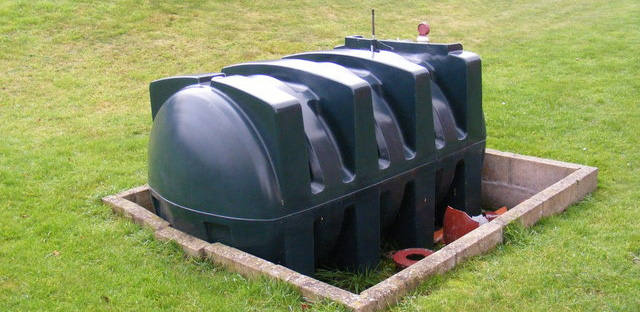Checking oil tanks
[edit] Introduction
When relying on an oil tank for the main source of central heating, it is crucial that it is checked regularly for leaks, corrosion and other signs of delay. Once an oil tank has started to deteriorate, repairs should be made as soon as possible before serious damage is done.
Although oil tanks are built to withstand normal weathering, there are a number of issues to look out for to ensure they remain in good condition, to ensure longevity and to avoid environmental spills from leaks.
This article describes some of the more common occurrences that can be recognised by sight, how these might affect the oil tank and what should be done to resolve these issues.
[edit] Signs of problems
Rust is fairly easy to identify as it shows on the tank exterior and can be flaky or cause blistering of paint. A rusting oil tank can be dangerous as the rust will worsen over time, potentially leading to environmental spills and also perhaps polluting the oil itself, making it less efficient. Rust is only present in metal tanks, however those with plastic oil tanks must check the plastic for any whitening, cracking or splits or any bulging in the tank profile as this can be equally as dangerous.
Leaking joints Cleaning up a leak of heating fuel from a domestic storage tank can be very expensive, so checking for leaking joints is essential. A key sign of an oil leak or a leaking joint is that oil usage suddenly increases unexpectedly. It is important to check the tank and pipework as soon as this is noticed, or purchase a tank monitoring device that can give an early warning of a rapid drop in oil level.
Water or sludge in the tank
Tanks containing water or sludge can clog the pipework and damage or even corrode heating systems, which reduces the oil efficiency and ultimately makes your heating cost more. You can find out whether or not your tank has water or sludge in it by looking for a ‘darkened’ area at the bottom of the tank, or by using water-finding paste which needs to be attached to a long stick and then placed into a tank. The colour of the paste will determine whether or not water is present.
[edit] Solutions
Conducting regular checks will help to reduce the risk of a large repair bill if something is wrong. In addition, an annual check-up by a qualified professional will provide more detail on condition and maintenance requirements.
If you are not entirely sure as to the condition of your oil tank, or if you see something suspicious that you want to know more about, seek advice from a licensed professional.
Featured articles and news
RTPI leader to become new CIOB Chief Executive Officer
Dr Victoria Hills MRTPI, FICE to take over after Caroline Gumble’s departure.
Social and affordable housing, a long term plan for delivery
The “Delivering a Decade of Renewal for Social and Affordable Housing” strategy sets out future path.
A change to adoptive architecture
Effects of global weather warming on architectural detailing, material choice and human interaction.
The proposed publicly owned and backed subsidiary of Homes England, to facilitate new homes.
How big is the problem and what can we do to mitigate the effects?
Overheating guidance and tools for building designers
A number of cool guides to help with the heat.
The UK's Modern Industrial Strategy: A 10 year plan
Previous consultation criticism, current key elements and general support with some persisting reservations.
Building Safety Regulator reforms
New roles, new staff and a new fast track service pave the way for a single construction regulator.
Architectural Technologist CPDs and Communications
CIAT CPD… and how you can do it!
Cooling centres and cool spaces
Managing extreme heat in cities by directing the public to places for heat stress relief and water sources.
Winter gardens: A brief history and warm variations
Extending the season with glass in different forms and terms.
Restoring Great Yarmouth's Winter Gardens
Transforming one of the least sustainable constructions imaginable.
Construction Skills Mission Board launch sector drive
Newly formed government and industry collaboration set strategy for recruiting an additional 100,000 construction workers a year.
New Architects Code comes into effect in September 2025
ARB Architects Code of Conduct and Practice available with ongoing consultation regarding guidance.
Welsh Skills Body (Medr) launches ambitious plan
The new skills body brings together funding and regulation of tertiary education and research for the devolved nation.
Paul Gandy FCIOB announced as next CIOB President
Former Tilbury Douglas CEO takes helm.
UK Infrastructure: A 10 Year Strategy. In brief with reactions
With the National Infrastructure and Service Transformation Authority (NISTA).























